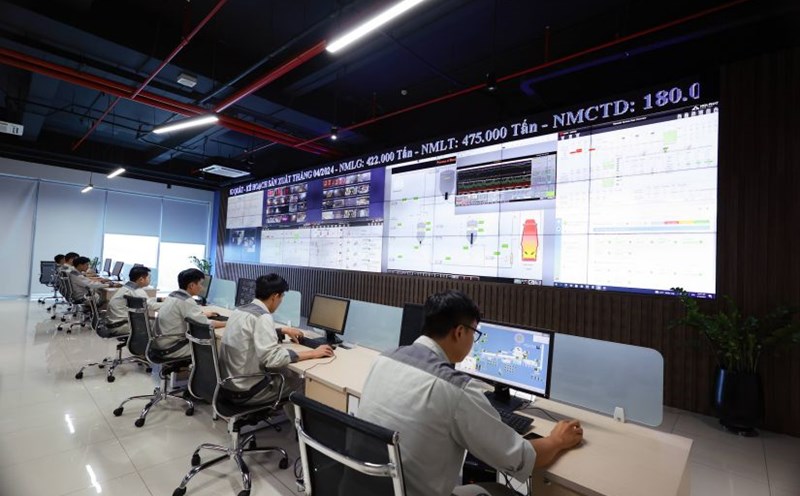When consumer perceptions change
Sharing with Lao Dong, many people said that they support green products, especially electric cars produced by domestic enterprises. Mr. Ho Minh Nghia (45 years old, Cau Giay district, Hanoi) is one of them. "I hope that one day all people in Hanoi and Ho Chi Minh City will use electric vehicles, from cars to motorbikes, to make the air cleaner" - Mr. Nghia hopes.
According to Mr. Nguyen Hung (38 years old, Hoang Mai district, Hanoi), there are many electric vehicle models on the market with incentives for consumers. "But the fact that Vietnamese people choose to use Vietnamese products makes me happy. We are supporting each other, working together in the effort to bring emissions to zero" - Mr. Hung said.
Consumer support for green products is the lever for manufacturers to boldly change. Mr. Vu Anh Tuan - CEO of VinFast Automobile Vietnam - said that it is the trust of users that helps VinFast create the miracle of having a large number of car deliveries as recently. Mr. Tuan said that with the support of customers, VinFast is confident that it will complete the plan to sell 80,000 cars in 2024.
Assessing the change in awareness and actions of Vietnamese consumers, Mr. Ho Tung Bach - Deputy Head of Consumer Protection Department, National Competition Committee - said that consumers' preference for green products is the driving force for businesses to continue developing green production.
According to Mr. Bach, in addition to consumer support, our Government has issued many policies and support measures, regulations on business responsibilities in sustainable production and consumption, or financial support, information provision...
Early on, the Vietnamese government issued many legal policy documents such as the International Declaration and National Action Plan on Sustainable Production and Consumption (1999); International Declaration on Cleaner Production (1999); Law on Energy Efficiency and Conservation; Law on Consumer Protection... Decision No. 1393 of the Prime Minister on approving the "Green Growth Strategy for the period 2011 - 2020 and vision to 2050" pointed out two tasks related to green consumption: greening production and greening consumption.
This strategy is the legal basis for building green consumption policies, showing that the transition to a green consumption model is the goal of the Vietnamese government in sustainable development.
Policy needed to pave the way for consumers to green products
There are incentives, but the solutions to promote green consumption are currently mostly from businesses. In addition to organizing green shopping festivals, many businesses proactively issue many incentives and price reductions to encourage people to consume green.
However, in general, green consumer goods are still expensive. Having practical mechanisms, solutions, and appropriate support programs from authorities and localities is essential to encourage green and sustainable production and consumption models.
For example, in the consumer market for motorbikes and cars - where changes in consumption will significantly change emissions in big cities - there is a lack of policies to promote consumption. Incentive policies to encourage consumers to switch to environmentally friendly vehicles, although they exist, are not strong enough.
Currently, battery-powered electric cars are exempt from the first registration fee for 3 years from March 1, 2022 according to Decree 10/2022/ND-CP. However, on March 1, 2025, the preferential exemption from the first registration fee for electric cars will expire. Not only cars, electric motorbikes are still subject to the same license plate fee as gasoline motorbikes...
Support policies are still not attractive enough for businesses to be willing to enter the market to provide green consumer products. Green financial resources to finance green production projects are still limited, with low support levels.
To promote green consumption behavior, it is clear that what we need to do is to soon complete the legal framework and practical measures to support businesses to participate in the green production market; Unblock green credit, strengthen channels to attract green capital from domestic and international organizations and investment funds, so that businesses can easily access; Have policies to support businesses to compete for green products at home, stimulate consumers' demand for green products through propaganda to change awareness, have preferential policies, timely discounts, thereby forming green consumption habits in the community.
In the effort to transform green and reduce emissions, changing people's awareness of green consumption is an important link and should be prioritized like other solutions.











